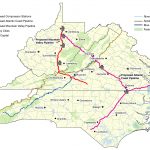
As the Mountain Valley and Atlantic Coast pipelines clear some of the regulatory hurdles in their way, communities have rallied to state public hearings on water quality certifications to voice their opposition.

As the Mountain Valley and Atlantic Coast pipelines clear some of the regulatory hurdles in their way, communities have rallied to state public hearings on water quality certifications to voice their opposition.
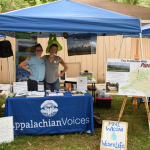
As federal regulators continue to rubber-stamp the dangerous, inadequate plans for the Mountain Valley and Atlantic Coast pipelines, we’re continuing to fight back alongside residents and grassroots groups across Virginia, West Virginia, and North Carolina.

As expected, the Federal Energy Regulatory Commission recently gave a glowing review to the Atlantic Coast Pipeline, overlooking the threats to wetlands, forest, drinking waters and indigenous populations along the pipeline’s proposed route.

This is the last day of my internship with Appalachian Voices. But even though my formal time here is over, I plan to continue fighting for clean water.
On May 24, Virginia’s state environmental regulatory agency conceded that information it had provided about how it would evaluate the potential water quality impact of two natural gas pipelines was inaccurate.
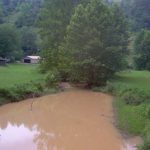
In a classic “fake news” move, Dominion Resources execs held a tele-press conference yesterday where they basically said the Atlantic Coast Pipeline is a done deal. But at least 25,000 people across W.Va., Va. and N.C. are demanding answers, such as: Is this pipeline even needed?
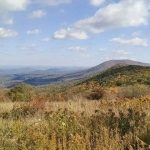
Both the Atlantic Coast and Mountain Valley Pipelines threaten to damage historic and scenic sites along their paths through West Virginia, Virginia and North Carolina. Places such as Bent Mountain and Peters Mountain could be permanently scared, while parts of the Appalachian Trail and the Blue Ridge Parkway could also be impacted.
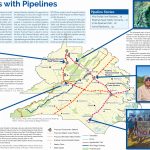
This map shows a sampling of the types of sites that would be affected by the proposed Mountain Valley Pipeline and Atlantic Coast Pipeline. View the print centerspread here while we transfer it to a web-friendly version.
If constructed, the proposed Atlantic Coast and Mountain Valley Pipelines would permanently mar several majestic vistas along the Appalachian Trail. Local residents and avid hikers voice concerns.
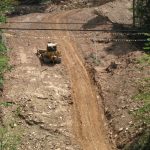
West Virginia resident and guest blogger April Keating outlines some of the key concerns with the Atlantic Coast Pipeline, including safety risk, runoff and pollution, increased fracking, costs to ratepayers and more.